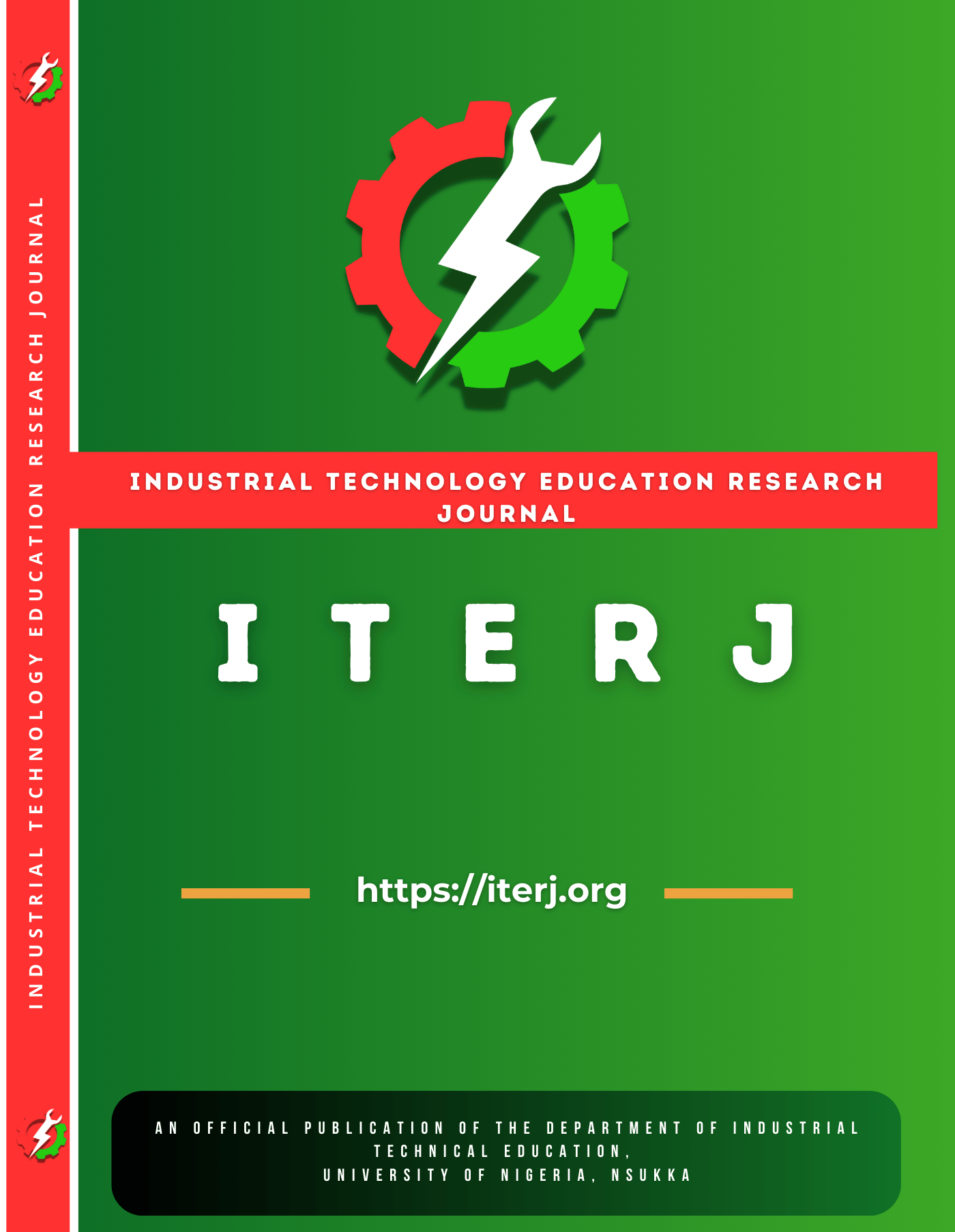Strategic Adaptation of Sustainable TVET Practices in Automobile Technology to Mitigate Global Economic Challenges
Keywords:
Sustainable TVET, Automobile Technology, Economic Resilience, Industry-Academia Collaboration, Workforce DevelopmentAbstract
The study examined strategic adaptation of sustainable TVET practices in automobile technology to mitigate global economic challenges with the aims at examining the impact of curriculum relevance of automobile technology on employment opportunities; explore the impact of industry-academia collaboration through automobile technology on economic resilience; and investigate the impact of sustainability and innovation in training methodsof automobile technology on skill development and workforce productivity in Kwara State, Nigeria. The study adopted descriptive survey research design. The population of the study comprises 1933 students and 10 lecturers/technologists in the University of Ilorin, Ilorin from which a sample of 140 respondent was randomly selected. Z-test statics was used to analyse three hypotheses formulated at 0.05 level of significance. The study revealed that curriculum relevance of automobile technology significantly impacts employment opportunities in Kwara State; industry-academia collaboration through automobile technology significantly impacts economic resilience in Kwara State; and sustainability and innovation in training methodsof automobile technology significantly impact skill development and workforce productivity in Kwara State. It is concluded that strategic adaptation of sustainable Technical and Vocational Education and Training (TVET) practices in automobile technology is essential for mitigating global economic challenges. The study recommends curriculum planners for automobile technology should make it relevant to impart job skills in students.Educational institutions and industries in Kwara State should strengthen partnership bond, and instructors and trainers should receive ongoing professional development.








